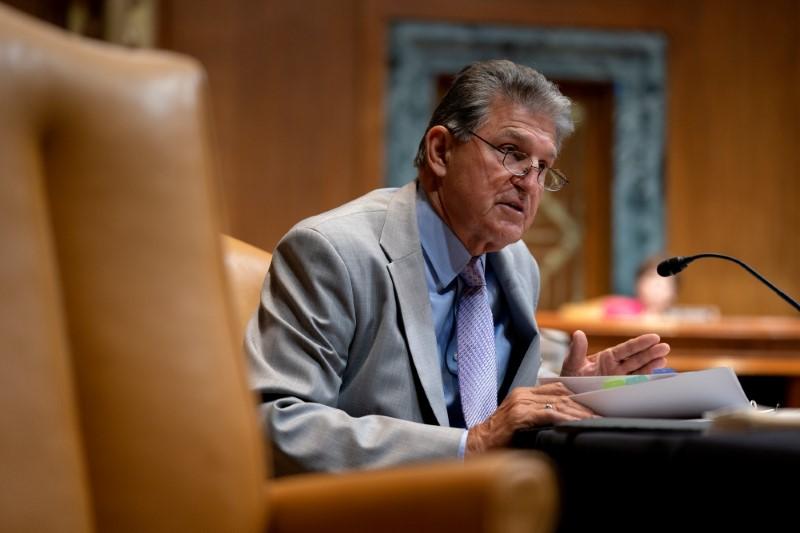Sen. Joe Manchin (D-W.Va.) says he is still not committed to voting for President Joe Biden’s $1.85 trillion social spending bill after months of negotiations and compromises meant to get the West Virginia Democrat on board with the plan, a troublesome sign for the bill’s prospects as the 2022 midterms draw nearer.
Manchin discussed the bill during The Wall Street Journal’s CEO Council Summit on Wednesday. The summit was attended by some senior White House officials, Manchin and other lawmakers, and business leaders representing an array of different industries to discuss America’s current and future economy.





